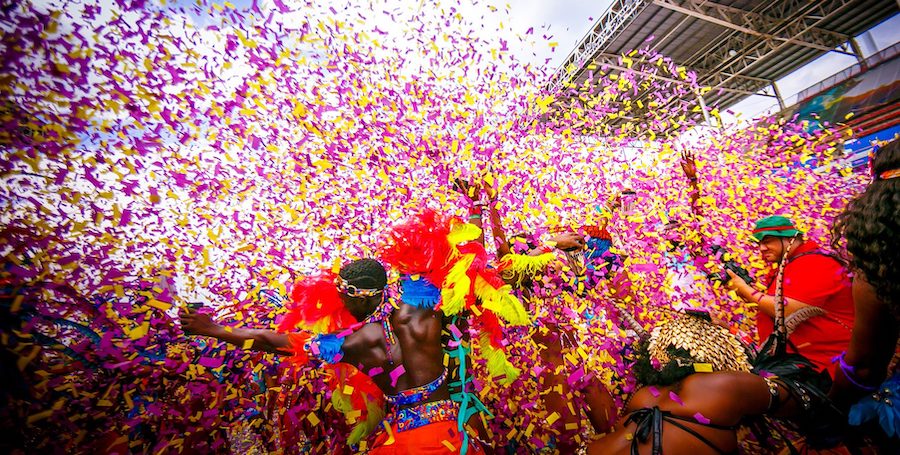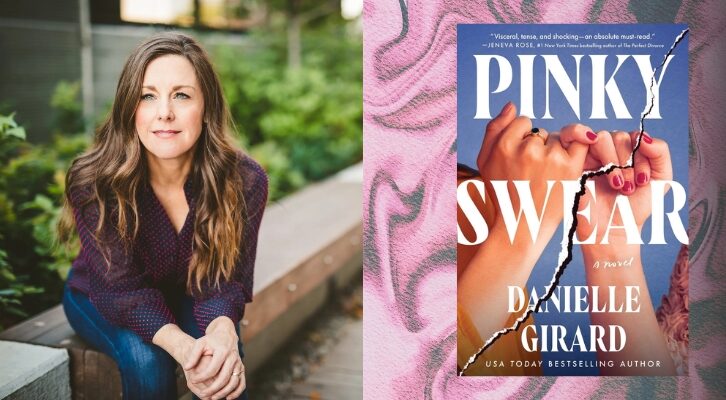
Caribbean Fiction Doesn’t Need to Be Altered for American Audiences
Breanne Mc Ivor Challenges Narrow Visions of Trinidad and Finds Liberation in Saying No to Simplifying Her Books for US Readers
Once, in the US, I told a group of people the story about the first time someone recognized me as a writer. I was in Starbucks, back home in Trinidad.
“Excuse me,” a woman said, “are you Breanne Mc Ivor?”
I racked my brain to remember where we’d met and then she said, “I just wanted to tell you how much I loved your short story collection.” I was deliriously happy. My first fan! “And,” she continued, “you’re so much prettier in person than in your author photo.”
In the US, my story got the usual reaction: a sympathetic groan-laugh. “Hang on!” one listener said. She seemed particularly shocked. “You have a Starbucks in Trinidad?” The Starbucks—of course—was not the point of the story. It was incidental in every way. But her imagination of Trinidad could not conceive of a Starbucks.
I have lived in Trinidad and Tobago for almost my whole life; we have Starbucks and many other coffee shops, Carnival creativity that has blossomed into a booming beauty industry, as well as oil and gas money sustaining a powerful private sector. It is a place at the intersection of colonialism and nascent nationhood.
My mother was born just on the cusp of our independence from Britain; my grandparents—both still alive today—lived through colonialism. Alongside the stereotypical Caribbean sun, sea, and sand, it is a place pockmarked by poverty, where the legacy of sugar plantations and slavery echoes loudly though society.
Defending fictional characters and a fictional plot soon morphed into defending the authenticity and validity of my own lived experiences.
Caribbean writers have historically written in opposition to the narrow and often racist assumptions leveled against them. In Letters Between a Father and Son, V.S. Naipaul wrote to his father on December 11, 1950, from Oxford University, “I want to come top of my group. I have got to show these people that I can beat them at their own language.” It’s not just Naipaul who thought this. Naipaul and his author contemporaries protested colonial condescension through success, showing that we West Indians could reach the same heights as any other authors.
It’s a mark of progress that I don’t feel the need to prove that I too can speak the Queen’s English while writing. My debut novel, The God of Good Looks was born out of my experiences as a Trinidadian woman. I wrote from Trinidad, in the quiet bubble of my own creativity; only when I sent the book out to international agents and beta readers did I question how my portrayal of modern Trinidad would collide with the external world’s understanding of the Caribbean.
One of my characters is a legendary local makeup artist and people asked questions like, “How realistic is it for a Trinidadian character to know so much about makeup?” and “How representative is this of the Caribbean experience?” One reader said that the book was hard to get into because she wasn’t expecting a story about the beauty industry to be set in Trinidad. As if beauty is the province of Milan, Paris, and New York.
Defending fictional characters and a fictional plot soon morphed into defending the authenticity and validity of my own lived experiences. I found myself saying, over and over, with increasing frustration, The story is invented but what I’m describing exists. I am a Trinidadian! I know what I’m writing about.
I chafed against the perception of Trinidad as either an island paradise or else a place of rank ignorance, seemingly unchanged over the years even as the rest of the world evolved. Maybe things were not so different from Naipaul’s time after all.
Suggested edits from early readers and agents seemed designed to sand the rough edges off my country and to present a version of Trinidad that would cater to an international audience’s conception of the Caribbean rather than showing our contemporary realities. One agent read my book and told me that she loved it; but she didn’t like the portrayal of crime in the novel. The book was a bouncy beach read, something that would work perfectly set in a Caribbean paradise, so references to criminality would have to go.
I’d once heard the great Jamaican writer Marlon James describe how he refused a publisher’s request to rewrite his Booker Prize-winning novel A Brief History of Seven Killings to make it easier to understand.
But Trinidad has the sixth highest crime rate in the world and crime leaves its thumbprint on all our windowpanes. Even in a book that (I hope) is fun and funny, having the characters experience crime was necessary to make the novel authentic. I wanted to write the real Trinidad, not some fantasy version. But, at the same time, I wanted an agent.
I’d once heard the great Jamaican writer Marlon James describe how he refused a publisher’s request to rewrite his Booker Prize-winning novel A Brief History of Seven Killings to make it easier to understand. He defended his decision not to write in Standard English by saying, “If you don’t get the patois, I don’t give refunds.”
And while I don’t often write in local Creole, I was inspired by his overall message. I interpreted it as, “don’t let them tell us how to tell our stories.”
However, faced with the challenge of securing an agent, I began to wonder whether authenticity was the hill I wanted to die on. I had heard many stories of Caribbean authors whose publishers asked them to change “ent” to “ain’t” so the language wouldn’t confuse readers or Caribbean writers who were asked to edit because their books lacked “relatable” characters; a term that begs the question, relatable to whom?
I went as far as starting to edit the crime out of my novel, but the new version felt false and I couldn’t continue. I wanted to be published but, more than that, I wanted to write something that did my country justice, even if that meant combining a Trinidadian Bridget Jones’s Diary with a novel that tackled the scourge of crime. It turned out, authenticity was the hill I was willing to die on.
I ultimately did get lucky. An agent wrote back to me, and she suggested brilliant changes while automatically and implicitly deferring to me as an expert on modern Trinidad. In part because of that creative liberty, I secured wonderful publishers in the US and the UK I hope I’ve written a book that will challenge some readers’ perception of the Caribbean.
From the vantage point of the present, it seems as if everything worked out. But when I was stuck in the quagmire of querying agents, there was no way of knowing if I would ever reach this point. Publishing is concentrated in a few countries—often a few cities within those countries—and when you’re writing so far from the epicenter, it can be hard to find genuine advocates for your work.
I had to learn how to differentiate between helpful and purely negative suggestions, and how to write a book that vividly described my country while being unapologetic about our modern realities. And saying no to suggestions that felt inauthentic meant that I could eventually say yes to a team that valued authenticity. To paraphrase Marlon James, if you don’t get the setting, I don’t give refunds.
______________________________

The God of Good Looks by Breanne Mc Ivor is available via William Morrow.
Breanne Mc Ivor
Breanne Mc Ivor is the award-winning author of a short story collection, Where There Are Monsters (2019), and her debut novel The God of Good Looks (2023). Mc Ivor holds degrees in English from the universities of Cambridge and Edinburgh and has a certificate in Advanced Professional Makeup Artistry. She lives in her home country of Trinidad and Tobago.



















